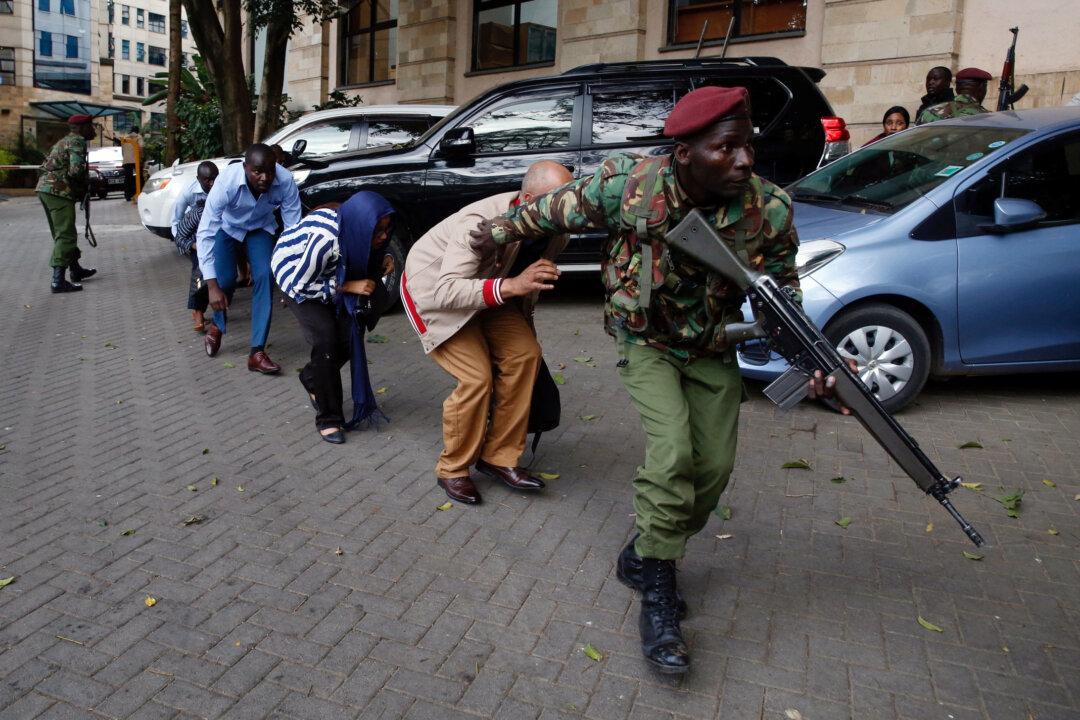NAIROBI, Kenya—Gunmen blasted their way into a hotel and office complex in the Kenyan capital on Tuesday, Jan. 15, killing at least seven people and sending workers diving under desks from an attack claimed by Somali terrorist group al Shabaab.
Police warned the “terror attack,” which echoed a 2013 assault on a Nairobi shopping center, may be ongoing, with assailants still inside the upscale 14 Riverside Drive complex.





